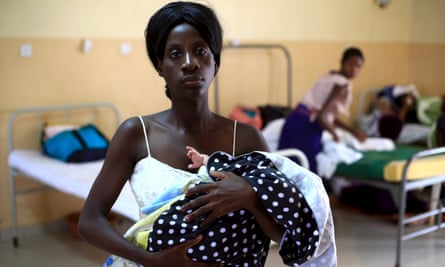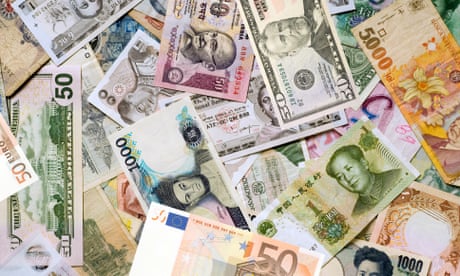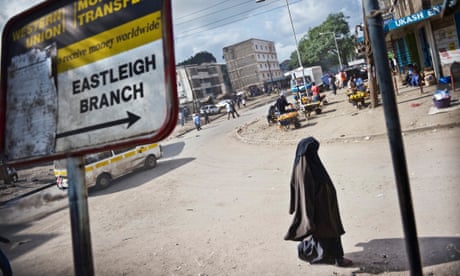MUST READ
Greed is Good, Greed is right, greed works: How thousands including UPDF general were fleeced of billions in cryptocurrency neo-liberal scam
https://watchmanafrica.blogspot.com/2020/08/greed-is-good-greed-is-right-greed.html
When Neo-liberal Thug pastors with security detail Rob Ugandans with impunity: Slay Prosperity Bishop FRED NTABAZI of ONE LIGHT INTERNATIONAL MINISTRIES cons Ugandans of Millions in Ponzi Scheme
https://watchmanafrica.blogspot.com/2020/08/when-neo-liberal-thug-pastors-with.html
Ephren Taylor, 32 the Ponzi Perpetrator at Eddie Long, Joel Osteen Churches Heads to Prison
Ponzi schemes in Uganda are part and parcel of the government’s Plan to promote economic development through Primitive Wealth Accumulation : Why Museveni’s Neo-liberal banditry state pretends to Sympathize with the Victims of Ponzi Schemes
https://watchmanafrica.blogspot.com/2020/08/ponzi-schemes-in-uganda-are-part-and.htmlUgandan financial fraud victims: still fighting for compensation years later
https://www.theguardian.com/global-development-professionals-network/2016/jan/13/ugandan-victims-still-fighting-for-compensation-years-late-cowe
Eight
years on, 3,000 Ugandans are living with the consequences of investing
money into a fraudulent scheme that promised them 54% interest
Caring
for Orphans, Widows, and the Elderly (Cowe) had the appearance of a
respectable non-profit organisation. They had nice offices (usually a
good yardstick for corporate credibility in Uganda), were registered
with the Uganda National NGO board and described themselves as a
community membership organisation that would lift the vulnerable out of
poverty.
They also claimed to be running
a microfinance scheme that would pay good rates of interest to
investors, despite not having a license from the central bank to take
deposits from the public. The interest rates – a hefty 54% a month –
should probably have sounded warning alarms. But people who invested
65,000 Ugandan shillings (£13) when they first opened received Shs
100,000 (£20) at the end of the month. Ugandans smelt an opportunity to
make a quick buck, and when the first savers got the supernormal
interest, a buzz of excitement was created.
The
first beneficiaries persuaded friends and family members to join and
everyone who could rushed to cash in. “People borrowed money even from
banks in order to earn interest from Cowe,” says Leonard Kobusingye who
worked for a bank in the western Ugandan town of Ibanda. Kobusingye
borrowed Shs 25m from his bank to deposit with Cowe.
However, suspicions were mounting about the operation and in 2006 the Bank of Uganda tried to intervene, freezing the accounts
(pdf) of Cowe on the grounds that they were collecting deposits from
the public without the requisite licence. But the Ugandan High Court
quashed the decision after Cowe complained they had not been given a
hearing. While the high court’s decision would later be overturned by
the appeals court in 2009, it would be too little, too late. Immediately
after Cowe’s accounts were unfrozen by the high court, some of the
directors emptied the organisation’s accounts, and fled with thousands of Ugandans’ deposits.
Kobusingye
became one of the many Ugandans who lost it all. “I sold my car. Then, I
would borrow here to deposit there, to try and keep my reputation,”
says Kobusingye, who eventually had to quit her bank job in 2013 because
the bank were concerned about his personal indebtedness.
Primary
school teacher John Byaruhanga and his wife invested some of their
savings in Cowe, and lost Shs 70m when it shut down. Now he can’t pay
his five children’s school fees.
“I cried when
the school first turned my children away [over the unpaid fees], because
I still remember how I used to drive them to school, and how I would
always pay fees promptly,” says Byaruhanga, who is now secretary of the
taskforce for victims of the Cowe scheme.
Byaruhanga’s
group has appealed for help from the Ugandan leadership, including
writing to President Yoweri Museveni and the current prime minister, Dr
Ruhakana Rugunda. But they have got nothing beyond promises that the
matter will be looked into.
“We want to be
compensated like any other disaster, because they compensated people of
Bududa [after the landslides], and they compensated people in Kampala
when their shops were burnt ... the Bank of Uganda should have regulated
these people and they should not have even got licensed to operate [as a
non-profit],” says Byaruhanga.
The
main complaint of most victims today is that the central bank did not
intervene immediately to close COWE after it started taking money from
the public and should therefore take responsibility for the crisis that
ensued, a view shared by the Global Alliance for Legal Aid (Gala).
“The central problem with this laissez-faire attitude
is that criminals who operate predatory financial schemes are very
difficult for the general public to distinguish from licensed financial
institutions,” says Jami Solli, executive director of Gala. “A licensing
authority such as the Bank of Uganda, however, is in a much better
position to separate the wheat from the chaff than the average
consumer.”
“The Bank of Uganda is remiss in its
duties as regulator if it simply states ‘buyer beware’, or tells people
these institutions were not licensed, thus it is your problem if you
lost your life savings.”
Solli wants the
government and its donors to set up a fund to compensate victims, and
have the bank loans written off, citing the country’s existing deposit
protection scheme, where the central bank compensates any Ugandans whose
bank or microfinance organisation closes, as a way of funding
compensation.

Solli
is also critical of the role played by banks such as Centenary and
Stanbic, which was a banker for Cowe. Not only did Centenary fail to
keep tabs on what its customer Cowe was doing, it did not properly
investigate what the borrowers were going to do with the money lent to
them. Both banks have chosen not to comment on their relationship with
Cowe.
Neighbouring countries have set a precedent for action. In March, Business Daily newspaper reported that over 26,000 Kenyans sued the Kenyan government after
fraudulent pyramid schemes stole Kenyan Shs 4.15bn (£27m) from them.
Like Byaruhanga and Gala, the Kenyans argue that if the Kenyan central
bank had done its job, the schemes would have been stopped before so
many people lost so much money. The case is ongoing.
New report reveals extent of damage
In a recent report prepared
for Gala, which is to take legal action on behalf of Cowe victims, the
UK law firm Simmons & Simmons shared stories of victims struggling
with debts after Cowe closed. These include taking loans from other
lending institutions in a bid to pay old creditors and victims of the
fraud killing themselves – unable to shoulder the weight of worry borne
of debt.
They concluded: “It is evident from
our investigation that there exists a clear and urgent need for the
international community to intervene to provide relief to the victims
and bring an end to the downward spiral of indebtedness.”
Byaruhanga
says he personally knows at least four cases of suicide arising out of
the burden of Cowe’s activities. One is that of Cleophas Ndyanabo, who
had worked as an accountant in Kanungu district in southwestern Uganda.
His
widow, Resty Ndyanabo, says they lost Shs 140m when Cowe closed. “My
husband was suffering. He had got loans from banks and money lenders so
we could put money into Cowe. When it closed, the debts were too much
for him, so, in 2009, he went to Lake Bunyonyi and drowned himself.”
Ndyanabo
left Resty with six children, whom she is struggling to put through
school. A peasant farmer, she says she sold virtually all the home
assets, including land, but remains indebted.
Back
in Ibanda, Leonard Kobusingye, now a farmer, says getting help would be
akin to the Biblical story of Jonah, who was swallowed by a fish for
three days before God brought him out alive. Her current debt stands at
Shs 31m.
How Ugandan Banks and Microfinance Lenders Keep Profiting Off a Pyramid Scheme
2 minute read | September 8, 2015 | 3333 views
Efforts to achieve financial inclusion for the poor will never
succeed until regulators better monitor and control financial markets,
and take action to prevent fraud that preys on the poor and desperate.
A 2010 survey found that Kenyans had lost more than US$30 million to pyramid schemes. This loss not only harms poor people, but also diverts funds which could spur economic growth.
The situation is equally dire in neighboring Uganda, where the Global Alliance for Legal Aid, with pro bono legal support from Simmons & Simmons law firm, is representing more than 3,000 victims of a pyramid scheme, innocuously named Caring for Orphans, Widows and the Elderly (COWE). The victims lost millions of dollars to this scheme.
In Uganda, there are thousands of unregulated financial services providers. Semi-literate consumers are on their own to determine whether a financial services provider is legitimate or a criminal. Even legitimate financial sector gatekeepers played hot potato with the COWE pyramid scheme, to the detriment of thousands of poor people.
The Bank of Uganda and the Ministry of Internal Affairs were also aware that COWE was taking deposits from the public in violation of the Financial Institutions and the Micro Finance Deposit-Taking Institutions Acts.
COWE operated for years, collapsing in 2007. After its collapse, Ugandan parliamentarians questioned the source of COWE’s funds, but didn’t investigate further.
Victims attempted a collective legal action, which was filed and shelved. Some eight years later, no one affiliated with COWE has been punished for this crime. Quite possibly they are still plying their trade.
The victims of the fraud, however, continue to suffer. There have been at least 11 suicides connected to the case. Divorce became common, and hypertension and diabetes increased significantly amongst the victims.
When the scheme collapsed, victims lost their life savings, and many are still mired in debt, in connection with loans they took out to invest in COWE. By law in Uganda, if a debtor defaults, their creditors can send them to jail. I interviewed one mother of three incarcerated in the border town of Kabale due to her inability to repay COWE-related loans; she has at least six loans outstanding.
The COWE fraudsters were skilled con artists. They preyed on the desperate and they imitated microfinance operations, pretending to have foreign donors who wanted to alleviate Ugandan poverty. They also hired from within the community; often retaining preachers’ wives and other respected members of the community to help attract new victims. These low-level staff were not aware of COWE’s criminal nature.
COWE took deposits and promised high returns. An investment of 65,000 Ugandan shillings would pay 100,000 shillings (about US$28) at the end of the month. The first repayment was generally made as promised, convincing victims to invest more; to tell their friends and family; and worse, to seek out loans from banks, microfinance institutions, savings and credit co-operatives, and money lenders.
Other financial institutions were very willing to issue loans, rarely inquiring about why the borrower needed the money. Their profits also soared thanks to COWE.
In fact, a leading Ugandan microfinance institution came up often in our interviews with COWE victims. Many victims received loans from this institution to invest in COWE, and its profits rose from 30 percent to 70 percent in 2007. COWE’s own directors even banked there.
Ugandan lenders are continuing to refinance the victims’ debts, digging the hole deeper. Other lenders have elected to jail defaulting COWE victims.
For eight years, the financial institutions have continued to profit from the COWE fraud. It is time for the regulators to intervene and help the victims.
Existing loans related to the COWE fraud should be forgiven and a victims compensation fund should be established. This initiative could be funded in part by the Ugandan deposit protection scheme.
The international community should also support debt forgiveness for the victims – recognizing that there can’t be financial inclusion without consumer protection and market regulation.

A 2010 survey found that Kenyans had lost more than US$30 million to pyramid schemes. This loss not only harms poor people, but also diverts funds which could spur economic growth.
The situation is equally dire in neighboring Uganda, where the Global Alliance for Legal Aid, with pro bono legal support from Simmons & Simmons law firm, is representing more than 3,000 victims of a pyramid scheme, innocuously named Caring for Orphans, Widows and the Elderly (COWE). The victims lost millions of dollars to this scheme.
In Uganda, there are thousands of unregulated financial services providers. Semi-literate consumers are on their own to determine whether a financial services provider is legitimate or a criminal. Even legitimate financial sector gatekeepers played hot potato with the COWE pyramid scheme, to the detriment of thousands of poor people.
The Bank of Uganda and the Ministry of Internal Affairs were also aware that COWE was taking deposits from the public in violation of the Financial Institutions and the Micro Finance Deposit-Taking Institutions Acts.
COWE operated for years, collapsing in 2007. After its collapse, Ugandan parliamentarians questioned the source of COWE’s funds, but didn’t investigate further.
Victims attempted a collective legal action, which was filed and shelved. Some eight years later, no one affiliated with COWE has been punished for this crime. Quite possibly they are still plying their trade.
The victims of the fraud, however, continue to suffer. There have been at least 11 suicides connected to the case. Divorce became common, and hypertension and diabetes increased significantly amongst the victims.
When the scheme collapsed, victims lost their life savings, and many are still mired in debt, in connection with loans they took out to invest in COWE. By law in Uganda, if a debtor defaults, their creditors can send them to jail. I interviewed one mother of three incarcerated in the border town of Kabale due to her inability to repay COWE-related loans; she has at least six loans outstanding.
The COWE fraudsters were skilled con artists. They preyed on the desperate and they imitated microfinance operations, pretending to have foreign donors who wanted to alleviate Ugandan poverty. They also hired from within the community; often retaining preachers’ wives and other respected members of the community to help attract new victims. These low-level staff were not aware of COWE’s criminal nature.
COWE took deposits and promised high returns. An investment of 65,000 Ugandan shillings would pay 100,000 shillings (about US$28) at the end of the month. The first repayment was generally made as promised, convincing victims to invest more; to tell their friends and family; and worse, to seek out loans from banks, microfinance institutions, savings and credit co-operatives, and money lenders.
Other financial institutions were very willing to issue loans, rarely inquiring about why the borrower needed the money. Their profits also soared thanks to COWE.
In fact, a leading Ugandan microfinance institution came up often in our interviews with COWE victims. Many victims received loans from this institution to invest in COWE, and its profits rose from 30 percent to 70 percent in 2007. COWE’s own directors even banked there.
Ugandan lenders are continuing to refinance the victims’ debts, digging the hole deeper. Other lenders have elected to jail defaulting COWE victims.
For eight years, the financial institutions have continued to profit from the COWE fraud. It is time for the regulators to intervene and help the victims.
Existing loans related to the COWE fraud should be forgiven and a victims compensation fund should be established. This initiative could be funded in part by the Ugandan deposit protection scheme.
The international community should also support debt forgiveness for the victims – recognizing that there can’t be financial inclusion without consumer protection and market regulation.
Bank of Uganda freezes pyramid schemes, gift circles accounts
Added 5th October 2009 03:00 AM
THE Bank of Uganda has frozen accounts of pyramid schemes and
gift circles in commercial banks due to public outcry after people lost
large sums of money.
By Jude Kafuuma
THE Bank of Uganda has frozen accounts of pyramid schemes and gift circles in commercial banks due to public outcry after people lost large sums of money.
THE Bank of Uganda has frozen accounts of pyramid schemes and gift circles in commercial banks due to public outcry after people lost large sums of money.
Two of the pyramid schemes, COWE (Caring for Orphans, Widows and
Elderly) and Triple Nine, have already been singled out and their
accounts frozen. We have handed over the case to the Police for
investigations, said Juma Walusimbi, the Bank of Uganda spokesperson.
In a press notice yesterday, the bank warned the public against getting involved in such schemes.
In a press notice yesterday, the bank warned the public against getting involved in such schemes.
The Bank of Uganda has taken action to close the accounts of
pyramid schemes and gift circles in the commercial banks. The general
public is strongly advised that they risk the loss of their money
deposited with pyramid schemes and gift circles, read the statement.
The bank warned that while the schemes claim to offer business opportunities that can enrich participants, only the owners benefit.
Several such schemes, including Triple Nine, COWE and Dutch International, have been operating in Uganda using banks to mobilise funds from the public.
To join the scheme, people are required to pay money into a series of bank accounts. In return for making these payments, each new member is promised to receive payments from future new members recruited to the scheme.
All pyramid schemes and gift circles eventually run out of new members to recruit, the notice said.
When that happens, large numbers of members fail to receive any payments at all and lose their money.
Since 2003, schemes like TEAM and Dutch International in Jinja, as well as Triple Nine at Arua Park and COWE have been operating illegally without financial licences, Walusimbi said.
Another statement indicated that the Bank of Uganda recently won a case against COWE in which the Court of Appeal judged that the bank has powers to freeze a bank account if it has funds that are the proceeds of a crime.
The court also re-emphasised another provision which protects the bank from any law suit.
The bank warned that while the schemes claim to offer business opportunities that can enrich participants, only the owners benefit.
Several such schemes, including Triple Nine, COWE and Dutch International, have been operating in Uganda using banks to mobilise funds from the public.
To join the scheme, people are required to pay money into a series of bank accounts. In return for making these payments, each new member is promised to receive payments from future new members recruited to the scheme.
All pyramid schemes and gift circles eventually run out of new members to recruit, the notice said.
When that happens, large numbers of members fail to receive any payments at all and lose their money.
Since 2003, schemes like TEAM and Dutch International in Jinja, as well as Triple Nine at Arua Park and COWE have been operating illegally without financial licences, Walusimbi said.
Another statement indicated that the Bank of Uganda recently won a case against COWE in which the Court of Appeal judged that the bank has powers to freeze a bank account if it has funds that are the proceeds of a crime.
The court also re-emphasised another provision which protects the bank from any law suit.


